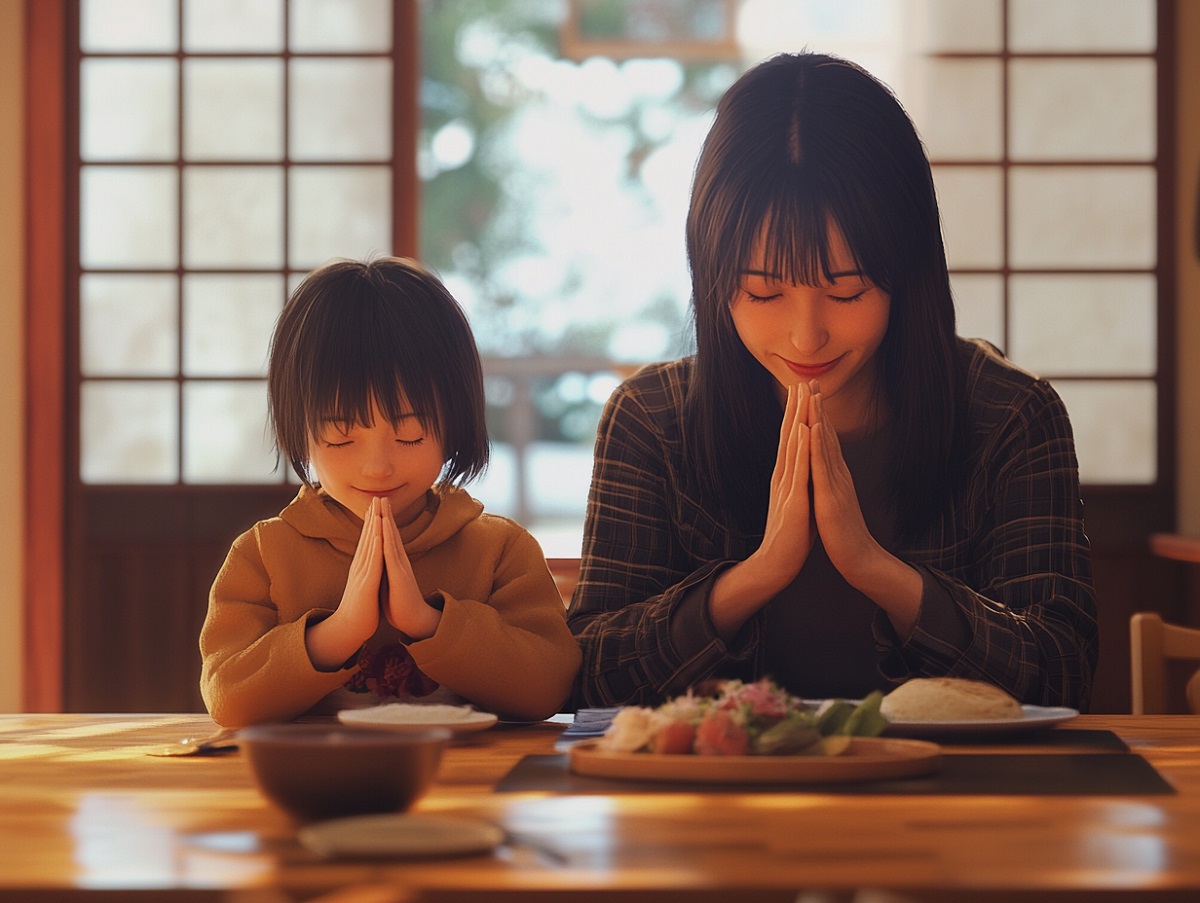
If you’ve ever dined in a Japanese restaurant or watched an anime, you may have heard someone say “itadakimasu” before digging into their meal. But what does it really mean? Why does this simple word reflect deep cultural values in Japan? In this blog, we explore its meaning, cultural significance, and why incorporating it into your meal routine could be more than just mimicking Japanese customs.
What does the word “Itadakimasu” mean?
At face value, itadakimasu could be translated as “I humbly receive,” but it means much more than that simple translation implies. It is a Buddhist expression of gratitude before eating, acknowledging everyone who contributed to the meal—farmers, fishermen, cooks, and even nature itself—for providing the sustenance. Essentially, it’s a quiet moment of reflection and thankfulness before eating, connecting people to the wider web of life that sustains them.
More literally, itadakimasu comes from the verb itadaku, meaning “to receive” or “to accept.” Originally, the word was used in a very respectful way to denote receiving something from someone of higher status. Over time, itadakimasu evolved into the phrase most people use before meals, becoming a way to express gratitude for the effort behind the food.
Cultural Significance of “Itadakimasu”
Respect and gratitude are strong facets of Japanese culture, and itadakimasu embodies this perfectly. It is not just about thanking the cook but also appreciating all the people and processes that brought the food to the table. It highlights the connection between everyone involved in preparing the meal.
Here’s why this matters:
- Mindfulness and Reflection: By stopping to say itadakimasu, you become more aware of the food and labor that went into it. This is a small way of showing gratitude.
- Gratitude to Nature: It also acknowledges the life brought to the table, whether it’s plants or animals, reminding us of the sacrifice involved in providing nourishment.
- Social Respect: During a communal meal, itadakimasu is also a way to respect others at the table—those who prepared the meal and those sharing it with you.
Why You Should Say “Itadakimasu”
You might wonder why you, from a different culture, should adopt this custom. Here are a few good reasons:
- Engenders Gratitude: In today’s busy world, it’s easy to take food for granted. Saying itadakimasu helps you appreciate the effort and people behind your meal and encourages you to take the time to enjoy it.
- Prompts Mindful Eating: Instead of rushing through meals, itadakimasu encourages mindfulness, helping you savor the flavors, texture, and nourishment your meal provides.
- Fosters Respect for Nature: As awareness of sustainability grows, itadakimasu can remind us that our food choices impact the environment. It shows that food is not just a commodity but a product of the relationship between humans and nature.
- Appreciation Across Cultures: If you enjoy learning about other cultures, saying itadakimasu is a meaningful way to connect with Japanese traditions. It shows respect for the deeper cultural values behind the custom rather than just imitating the surface-level aspects.
- Ties of Closeness: Saying itadakimasu together when dining creates a shared moment of appreciation. It brings everyone together in acknowledging the effort and life involved in preparing the meal.
How to Say “Itadakimasu” the Right Way
If you’d like to incorporate itadakimasu into your daily routine, here’s how to do it correctly:
- Say it before starting to eat, with your hands together in a gesture similar to praying, palms flat, and fingers pointed upwards. This is how it’s done in Japan, but feel free to adapt the gesture as you like.
- Say it clearly and respectfully—not particularly loud, but from the heart. Pronounce it like “ee-tah-dah-kee-mah-su” (with a soft “u” at the end, almost silent).
- Remember, it’s not just about the word but the thought behind it. Even if you’re not fluent in Japanese, understanding its meaning will help you appreciate this gesture to the fullest.
Conclusion
Itadakimasu may be a small word, but it holds immense cultural and spiritual importance. It acknowledges the people, animals, and forces of nature behind the food while encouraging gratitude and mindfulness. Whether you’re studying Japanese culture or just looking for ways to enhance your mealtime, itadakimasu is a valuable custom that can add grace and thoughtfulness to your everyday routine.
So next time you sit down to eat, say itadakimasu—and see how this small act of thanks can change the way you think about food.



